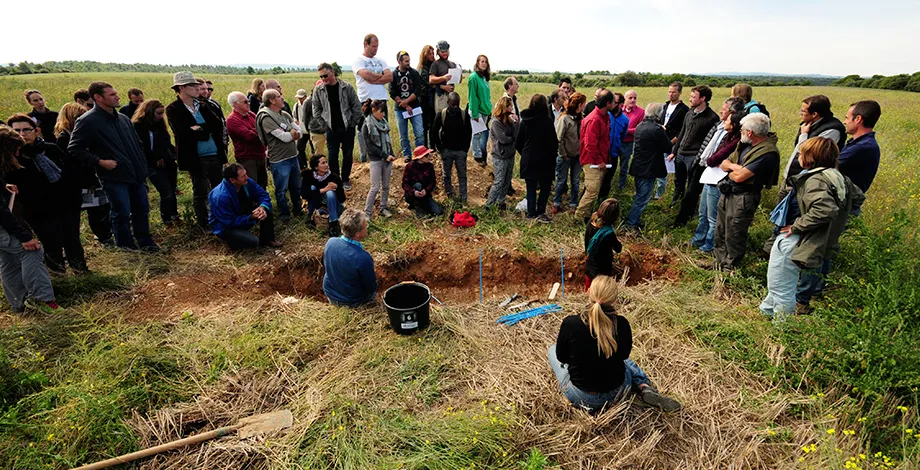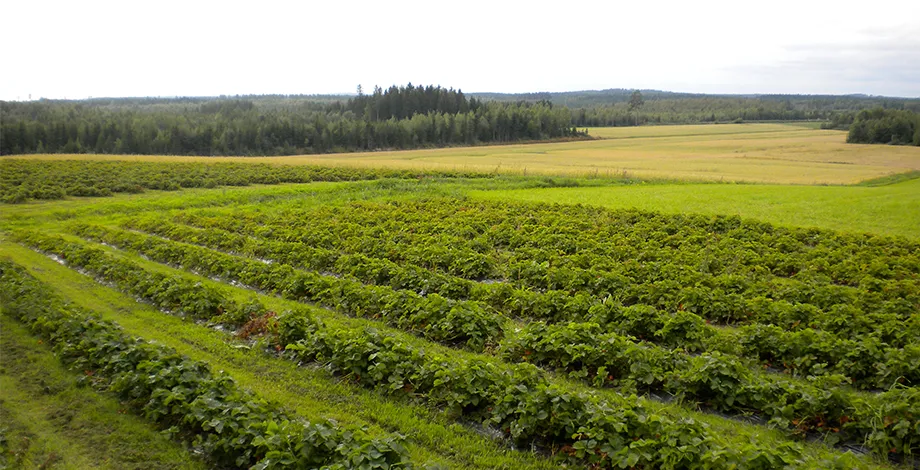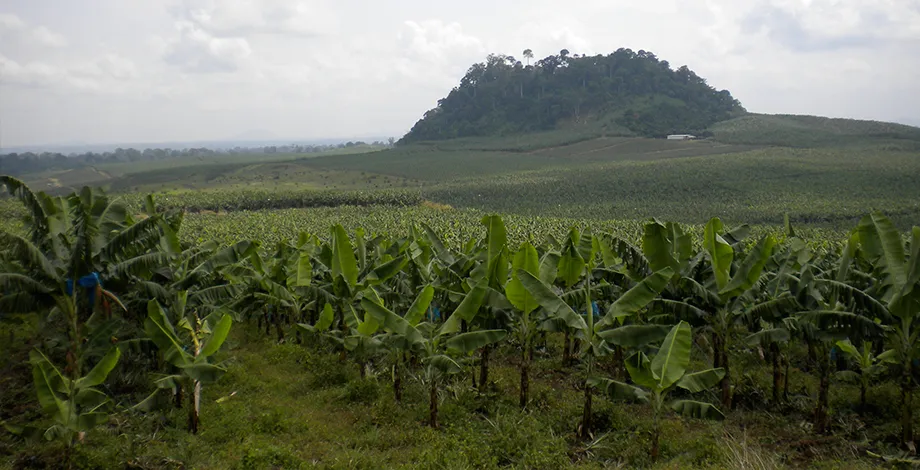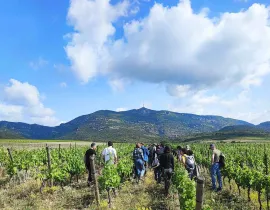Integrate knowledge in agronomy, biology and ecology to design sustainable cropping systems
|
What type of training ? |
une formation diplômante, sous statut étudiant |
|---|---|
|
For who ? |
student with a French diploma, international student |
|
Where ? |
L'Institut Agro Montpellier - La Gaillarde Campus |
Objectives
The AgroDesign specialization of the Master 3A programme aims to train young scientists who can contribute to the design of productive, ecological and sustainable cropping systems in the Mediterranean and tropical regions in response to global changes (climate, resources, biodiversity, food security, etc.).
Themes
- agronomy, agroecology
- biodiversity knowledge and management
- Mediterranean and tropical countries
- plant protection
-
Programme
Number of ECTS credits : 60
Language of instruction : In French
Students learn methods and knowledge from several scientific disciplines (agronomy, crop protection, ecology, biology, ecophysiology, genetics) and put them into practice in the analysis and design of a cropping system using appropriate methodologies.
This specialization consists of four teaching units:
- Integrated approach to the design of cropping systems:
• Case study of the design of a cropping system
• In situ diagnosis of an agrosystem - Methodology
• Methods of analysis, modelling and design of cropping systems
• Writing a scientific project
• Statistics for the study of agrosystems
• Modelling agrosystems
• Spatial analysis of agrosystems - Improving the resilience of agrosystems to pathogens
• Resistance to pests
• Plant-soil-micro-organism interactions (pathogens)
• Combination of crops - Integrated crop protection
• Tropical crops
• Mediterranean crops
- Integrated approach to the design of cropping systems:
-
Calendar
- From 30 August 2021 to 28 January 2022: classes
- From 31 January 2022: start of the compulsory internship (6 month)
- September: defend master’s thesis
-
Admission
First year master’s level (M1) in one of the following fields: plant protection, ecology, biology, ecophysiology, genetics, agronomy.
Sufficient level in English to be able to understand, read and participate in class and in group work (Level B2 of the Common European Framework for Languages or a TOEIC score of 750).
-
Careers
In most cases, after obtaining a PhD, students are employed in national and international research centres and universities as well as in private companies or in development projects where there is a growing demand for skills in analyzing and designing sustainable farming systems.
Director of studies
Partners
Research units: UMR System, UMR BGPI, UMR Eco & Sols, UMR LEPSE, UMR AGAP, UMR IME, UMR CBGP, UR HortSys, UR Aida, UR Bioagresseurs, UE Alenya, les Antilles (UR Systèmes Bananiers) la Réunion (UMR PVBMT), Avignon (UR PSH and UR PV, Sophia Antipolis: UMR ISA), Toulouse (UMR AGIR) and Dijon (UMR Agro-ecologie).
These partners contribute to teaching, propose cropping system design case studies, and propose internships for the master’s thesis. They also provide a strong international network with projects in the North and South.
The links with the private sector are maintained by these research groups and by the AgroSYS Chair of Montpellier SupAgro (partnership with Advini, UCOSEM-Epi of Gascony, Bayer, Compagnie Fruitière, Société de Canal Provencale et d’Aménagement of the Provencale region). These partners help finance scholarships for the master’s programme and dissertations.
Place
L'Institut Agro Montpellier
Campus de La Gaillarde
2 place Pierre Viala
34060 Montpellier - France
Registration
Key features
- Scientific training in agrosystem analysis and modelling
- Dual expertise in agronomy and crop protection
- Project-based learning on cropping system design methods
- Network of national and international research units in the field of agro-ecology
- Network of companies and agricultural development organizations in France and abroad.
Fees
- Complete programme (M1 + M2): €10,700 for the two years (M1: €5,600 and M2: €5,100) + €105 Contribution Vie Etudiante et de Campus (CVEC) administrative fee
- Direct admission in the 2nd year (M2): €5,800 + €105 Contribution Vie Etudiante et de Campus (CVEC) administrative fee
Contacts
L'Institut Agro Montpellier
2 place Pierre Viala
34060 Montpellier - France
Tél. : +33 (0)4 99 61 22 00 Tél. : +33 (0)4 99 61 22 00
Fax : +33 (0)4 99 61 29 00
contact@supagro.fr





















